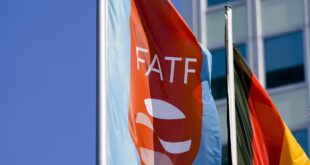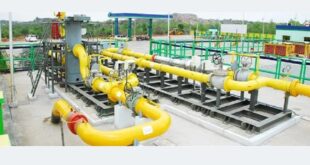- the CBG is the need of the hour, and Government is taking all steps to promote the ecosystem around it.
- The Compressed Bio Gas (CBG) plant inaugurated by Shri Hardeep S. Puri in Sangrur is a step in achieving objectives of the Sustainable Alternative Towards Affordable Transportation (SATAT) scheme, which was launched by Government of India in October 2018 to establish an ecosystem for production of Compressed Bio Gas (CBG) from various waste/ biomass sources in the country.
- The scheme aims to empower and unleash the rural economy by supporting farmers, increase India’s domestic energy production and self-sufficiency and also reduce the air pollution, and help India lead the world toward a clean energy transition.
- Apart from this plant, 38 CBG / Biogas Plants have been commissioned under the SATAT initiative.
- The CBG Plant at Sangrur, commissioned with an FDI investment of Rs. 220 crores (approx.) by Verbio AG, one of Germany’s leading Bio-energy companies, is spread across an area of 20 acres (approx.).
- The plant’s present production is about 6 TPD CBG, but soon this plant will process 300 Tons Per Day of paddy straw at max. capacity to produce 33 TPD of CBG using 8 digesters of 10,000 cubic meters.
- Yesterday, PM released the 12th instalment of the PM-KISAN direct benefit transfer scheme. Rs. 16,000 crores were instantly transferred into farmer-beneficiaries accounts. The Prime Minister also inaugurated 600 Pradhan Mantri KisanSamruddhiKendras (PMKSK), which will not only be sales centres for fertiliser but a mechanism for establishing a deep bond with the farmers of the country.
- He had also launched the Pradhan Mantri Bhartiya Jan UrvarakPariyojana – One Nation One Fertiliser, a scheme for ensuring affordable quality fertiliser under the ‘Bharat brand to the farmers.
- The benefits of the Sangrur CBG plant for rural economy, the Minister observed that this plant will consume 100,000 tons of paddy straw, which will be procured from 6-8 satellite locations within a 10 km radius of the plant.
- There shall be daily production of about 600-650 Tons of FOM (Fermented Organic Manure), which can be used for organic farming.
- The CBG Plant shall also provide direct employment to 390 and indirect employment to 585 people.
- Not only will this plant generate additional income for Sangrur’s farmers, but it will also provide a much-needed alternative to stubble burning, the Minister added further
- This Plant will reduce stubble burning of 40,000 – 45,000 acres of fields, translating into an annual reduction of 150,000 tons of CO2 emissions, which will not only ensure that the citizens of Sangrur, Punjab, breathe in cleaner air but also contribute towards India’s COP26 Climate Change targets of total projected carbon emissions by one billion tonnes from now to 2030 Achieving the target of net zero emissions by 2070.
SOURCE: THE HINDU, THE ECONOMIC TIMES, PIB
 Chinmaya IAS Academy – Current Affairs Chinmaya IAS Academy – Current Affairs
Chinmaya IAS Academy – Current Affairs Chinmaya IAS Academy – Current Affairs



